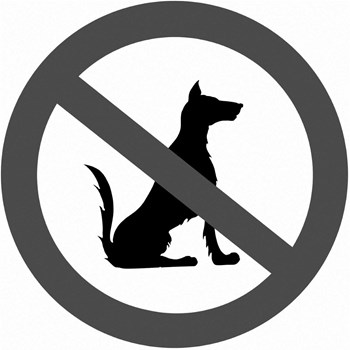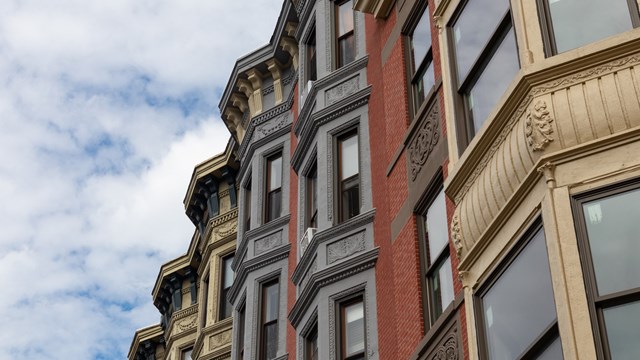
Every condo and co-op community has rules and regulations by which residents and their guests must abide. For the most part, these rules are pretty straightforward: no smoking in common areas, no pets, no skateboarding in the courtyard, and so forth. Sometimes, however, the board of a homeowners association will try to implement a rule that is either unenforceable or oversteps its powers—or a board may try to level penalties against rule-breakers that are either unrealistic or legally unsound.
What are good rules and bad rules, and what is the difference between them? What rights do boards have when rules are broken—and what rights do residents have when penalties are imposed? What are "rules," anyway, as opposed to say, bylaws? Let's take a look.
Rules are Rules—Except when they're Bylaws
By-laws concern the procedural requirements for operation and governance of the entity, while house rules are less technical and tend to involve primarily quality-of-life issues. Put simply, the former carry more weight than the latter. This makes by-laws harder to change and easier to enforce.
"It's an order of preference," explains Bob Shanahan, an attorney and partner with Kilcommons Shanahan LLC in Annandale. "There's the U.S. Constitution, the state constitution, state statutes, case law, the master deed, the bylaws, and then the house rules."
The lower down the ladder, the less carved in stone the given rule or regulation. You can't establish a bylaw that violates the U.S. Constitution; you can't, for example, pass a bylaw that discriminates on anyone covered under the equal protection clause of the Civil Rights Act.
Dogs, however, are not covered under said clause, and you are free to enact house rules banning them from the premises—as long as the rules in question adhere to state and local statutes.
In fact, house rules are generally aimed at quality of life issues—no barking dogs, no junk in the hallways, no smoke in the common areas (although boards in some parts of the country are trying to enact house-rules banning smoking entirely, even in private areas—but more on that in a moment).
Lawrence F. DiGiovanna, a past president of the Brooklyn Bar Association in New York and an attorney in private practice in Brooklyn, put it this way: "House rules are a code of conduct; bylaws are an operational guide."
A Matter of Perspective
This is not to suggest that house rules are easier to establish and enforce. To the contrary; because of the mercurial (in both senses of the word) quality of the house rules, they are often the subject of heated debate—which occasionally leads to lingering resentment, bad blood, and expensive litigation.
"It depends on whose ox is being gored," Shanahan says. "Rules about no planting may seem OK to some, but to others they seem excessively onerous."
He compares the way boards function to the way town governments operate. In both cases, if as a resident you don't like the way something is done, you have the right to attend meetings, complain, and, if all else fails, run for office yourself.
"House rules could and should be amended as time goes on based on the needs of the complex," says Michael Cervelli, president and owner of Cervelli Management in North Bergen.
He cites as an example the keeping of dogs on the premises.
"They might have allowed dogs initially because there were a lot of green areas around the complex," he says. "Ten years later, that might not be the case. It's not fair to the pet."
Some buildings are compelled to enact house rules that simply codify common sense because some residents seem to lack it. For example, Cervelli says, parking garages that were built decades ago might not be tall enough to allow for the preponderance of SUVs now driven by Americans. House rules had to be written than prohibited vehicles of a certain height from accessing the parking garages and either getting stuck or causing damage to both structure and vehicle.
Another rule change involved prohibiting what residents could wash down their kitchen sink—this after a combination of food and cactus (yes, cactus) combined to form a cement-like substance in the pipes, causing all kinds of damage to the building.
Should this be common sense? Sure. But if common sense is not expressly stated in either the bylaws of the house rules, the legal fault gets murky, and probably lies with the building, not with the resident.
Good Rules and Not-So-Good Rules
So what constitutes a good house rule? When asked, Cervelli laughs. "How do I boil down 'Treat others the way you want to be treated'?"
Shanahan, for his part, urges participation at all levels in the process. "A good rule is any rule that makes it easier for residents to attend board meetings," he says. The more connection residents have to the board, and the more they feel their voices are heard, the less likely there are to be problems. Boards, he says, should operate as transparently as possible.
Just as there are good rules, there are also bad ones—the types of restrictions and regulations that work better in theory than in practice and should therefore be avoided.
In a move that's generating controversy and lawsuits in co-op and condo communities across the country, one New Jersey HOA board wanted to establish a rule prohibiting smoking anywhere on the premises—including the individual units. Some unit owners had complained that smoke was getting through the vents into their apartments. Their complaints, coupled with the anti-smoking stance currently fashionable among local and state governments and a desire to promote a healthy lifestyle, provided the inspiration.
"We wouldn't let them do it," Cervelli says.
Why not? For one thing, such a rule is very difficult to enforce—short of conducting random, surprise inspections of smokers' apartments to try and catch them in the act. For another, it's too invasive and might not hold up in a court of law. For a third, it would likely create such ill will among residents as to be more trouble than good.
Patriotism, Samuel Johnson wrote, is the last refuge of a scoundrel. It should also be the last virtue any board tries to legislate against.
"Flying of the American flag can be prohibited in certain outside areas," Shanahan says. While it may technically be within the rights of a board to establish such a rule—in the form of house rules to regulate the uniform look of the complex—it's generally not advisable.
"If the board says to take it down, they get accused of being unpatriotic," says Shanahan, "and legal or not, that's the kind of thing that gets in the newspapers. Boards should stay clear of those rules."
It should also be noted that in most cases, owners are responsible for the behavior of their tenants and guests.
"Boards should deal with the [unit owners] directly," Shanahan says, and eliminate the middleman.
Scalliwags and Scofflaws
Rules, the old saw goes, are made to be broken. Whether they were made with that in mind is open to debate, but the fact is, almost any rule your association board can come up with is liable to get broken at some point by someone.
Cervelli tells of one resident who took her dog for a walk every day—in the hallway, where it would do its business. She would then bring the dog back into the apartment and not bother to clean up. (That she was a thorn in the side of the board—a constant complainer—only added to the irony). A rule was established involving where pets could relieve themselves, and how the waste was to be cleaned up (talk about a common sense rule!). The resident kept on denying her guilt—right until she was caught on videotape.
This is an extreme example, of course, but what is a board to do with those residents who violate the rules?
"We're not talking about somebody dropping a gum wrapper on the floor," Cervelli says. "Fines and consequences should be clearly spelled out."
Master deeds usually have specific penalties for violations, such as fees for paying maintenance late and so forth. If it gets that far, a notice of violation is sent to the resident in writing, spelling out exactly what will happen if the behavior continues and giving a time frame for action.
"The offender can request dispute resolution," Shanahan notes. "In New Jersey, there's a statute that requires it before cases can be brought to court."
And, yes, misbehaving residents can be forced to leave, if it comes to that. But it almost never does, thanks to the general fear people have of lawyers.
"A warning letter will usually do," Cervelli says.
Usually…but not always. And that's why bylaws and house rules—even those that simply state the dictums of common sense—are so important to the operation of a homeowners association.
Greg Olear is a freelance writer and a frequent contributor to the New Jersey Cooperator.






Leave a Comment